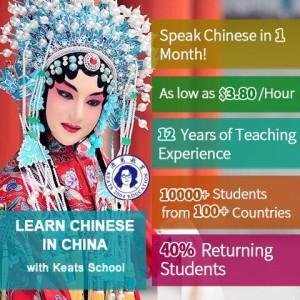Music is universal throughout the world and nearly everybody loves to listen to or even play music. We might have different tastes and like different genre but it will really help if you can talk about what types of music you prefer; or even explain why you like that particular type.
In this Podcast, you will learn:
(i) To talk about what type of music you like
(ii) How to discuss the various types of music you have listened to
Dialogue:
Two colleagues are talking about seeing a concert:
(在街上)
(zài jiē shàng)
(on the street)
A:汪峰要开演唱会了。你想看么?
Wāng Fēng yào kāi yǎn chàng huì le. Nǐ xiǎng kàn me?
Wang Feng is going to give a concert. Do you want to go?
B:呃,我不是他的粉。我也不太喜欢摇滚音乐。
Ē, wǒ bù shì tā de fěn. Wǒ yě bù tài xǐ huān yáo gǔn yīn yuè.
Eh, I’m not a fan of his. I don’t like rock music, either.
A:那你喜欢什么音乐?
Nà nǐ xǐ huān shén me yīn yuè.
Then what type of music do you like?
B:我喜欢流行音乐,尤其是嘻哈。有时我还听听爵士乐。
Wǒ xǐ huān liú xíng yīn yuè, yóu qí shì xī hā. Yǒu shí wǒ hái tīng tīng jué shì yuè.
I like pop music, especially hip hop. Sometimes I listen to jazz music too.
Chinese words and phrases mentioned in this Podcast:
音乐:music
开演唱会:give/hold a concert
粉:short for ‘粉丝’, which means ‘fans’. ‘粉’sounds more casual and more like a native speaker
不太喜欢:don’t like something very much
流行音乐:pop music
嘻哈:hip hop
说唱:rap (literally means ‘talk sing’)
爵士乐:jazz
乡村音乐:country music
乡村:village/countryside
摇滚:rock and roll
有时:sometimes
Cultural/Grammar note:
Wang Feng is a famous Chinese rock musician and composer. He was the founder and lead vocals of the rock band No. 43 Baojia Street. But he began his solo career in 2000. Many of his songs are quite popular in Mainland China, e.g. Flying Higher (飞得更高 fēi de gèng gāo) (2004), and Blooming Life (怒放的生命 nù fàng de shēng mìng) (2005). He is also a coach on The Voice of China (a Chinese reality television singing competition broadcast).
Mandarin Chinese learning resources we recommend:


